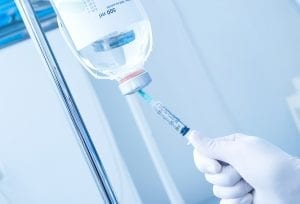Do you feel as though you are always bloated and gassy? Do painful stomach cramps and unpredictable bouts of constipation or diarrhea prevent you from enjoying your everyday life?
You are not alone. Previously thought to be a rare condition, scientists have found that more and more patients are seeking treatment for the telltale signs and symptoms of SIBO. Small intestinal bacterial overgrowth, or “SIBO” for short, is one of the leading causes of IBS and uncomfortable digestive symptoms. The telltale signs of SIBO are very similar to those of IBS and they can range from mild stomach discomfort to gas, bloating, abnormal bowel movements and much more.
SIBO is caused by bacterial overgrowth in the small intestine and it can happen to anyone. Luckily, there are very effective ways to diagnose SIBO and it is possible to treat and heal from this GI tract illness. Let’s explore the signs and symptoms of SIBO and discuss the treatment options available.
What is SIBO?
SIBO or small intestine bacterial overgrowth occurs when the natural gut bacteria in your intestinal tract overgrows. Specifically, it is characterized by high levels of bacteria in the small intestine which leads to an overproduction of methane and hydrogen gas. These excess gases cause unwanted and uncomfortable symptoms.
SIBO can happen to anyone, however, it is more common in women, seniors and those with existing digestive problems (IBS, Celiac, Crohn’s Disease)
The small intestine is where the majority of the body’s nutrients are absorbed. An overgrowth of bacteria here can damage the delicate existing bacterial environment and can affect your body’s rate of nutrient absorption as a result. This leads to malnutrition, vitamin deficiencies and makes patients more susceptible to illness. In particular, those who suffer from SIBO are more likely to experience anemia and vitamin B12 deficiencies.
SIBO can take a dramatic toll on both your physical and mental health. If you think you may have SIBO, these are some of the characteristic signs and symptoms to be aware of:
Symptoms of SIBO
- Excess gas
- Bloating
- Belching
- Abdominal cramps and discomfort
- Anemia
- B12 deficiencies
- Constipation
- Diarrhea
- Alternating constipation and diarrhea
- Malnutrition
- Indigestion
- Fatigue
- Food sensitivities
- IBS diagnosis
SIBO ranges in severity and is largely affected by your diet. As a result, the illness can go undetected for years and those who experience these symptoms often suffer in silence.
This can take a toll on your mental health, family life, career and overall quality of life. Therefore, even if you experience one or more of these symptoms, it is worth getting tested for SIBO.
What Causes SIBO?
The human body is home to a host of microbes, including bacteria, fungi and even viruses. They live all over your body, but the majority of bacteria reside in the human intestines where they provide many healthy benefits.
Healthy gut bacteria help to ferment and break down undigested food so our bodies can absorb the nutrients we need to survive. They also aid in absorbing water and important vitamins. The immune system is strengthened by this flourishing microbial community.
In an ideal situation your body naturally prevents an overgrowth of such gut flora internally with bile, peristalsis, and intestinal mucus. A healthy diet and probiotic supplements can also aid in maintaining this ecosystem.
SIBO develops when there is bacterial overgrowth, most frequently in the small intestine. This can lead to uncomfortable and embarrassing symptoms of IBS.
There are many different things that can cause SIBO but there are certain people that are more at risk for the disease.
Who is Most Susceptible to SIBO?
Anyone can get SIBO, but some are more susceptible to the illness than others. 1 in 9 will develop IBS after contracting bacterial gastroenteritis. About 85% of IBS cases also test positive for SIBO.
Women, the elderly and those with compromised immunity are more susceptible. SIBO can also affect those who have recently taken antibiotics or are taking immunosuppressant medications. If you fall into the high risk category and are experiencing symptoms of SIBO, we suggest you get tested.
Existing illnesses that increase risk for SIBO:
- Diabetes
- Celiac disease
- Crohn’s disease
- IBS
- Cirrhosis
- HIV
- Fibromyalgia
- Hypothyroidism
Additional risk factors:
- The elderly
- Recent antibiotic treatment
- Being female
- Reduced stomach acid (those taking proton pump inhibitors or PPIs)
- Recent stomach or bowel surgery
Can Doctors Test for SIBO?
The good news is that doctors have multiple tests for SIBO which have proven to be effective in diagnosing the illness. There are 3 main ways to test for SIBO. The most common include the SIBO breath test, the bacterial culture test and lastly, the medical treatment test.
Breath Test (Non-Invasive)
The most frequently used test for SIBO is a breath test which measures the levels of methane and/or hydrogen gas present in your breath. The human body does not produce these gases naturally, which means that if traces are found in your breath, you have SIBO.
Actually, hydrogen sulfide gas may also be evident in patients experiencing SIBO, however a test for hydrogen sulfide gas is not yet available in Canada.
Here’s how it works:
- Your doctor will have you ingest a lactose sample.
- You will then collect 10 breath samples over a period of 3 hours – as the sample is processed by your digestive tract.
- The test results are considered positive when one or more of the following are present:
- Hydrogen gas, methane gas or both.
The SIBO breath test is fast, non-invasive and highly accurate. We offer diagnostic breath testing in our clinic as it’s the most effective way to test for SIBO.
Bacterial Culture Test (Invasive)
Also known as Jejunal Aspiration, this test is more invasive for the patient. This test requires a fluid sample from your small intestine (endoscopy) the sample is then grown in a lab and the culture is tested for harmful gut bacteria.
The culture test is rarely used because it is a lengthy, invasive process. It is highly accurate but still has limitations when it comes to testing for SIBO.
The bacterial culture test can run the risk of contamination which would provide a false test result.
Testing Medical Treatment
Lastly, a low effort way to test for SIBO is to prescribe the medication used to treat SIBO and gauge whether or not the symptoms prevail. A relief from your symptoms would indicate you have SIBO and the treatment is effective.
The most common treatment for SIBO is antibiotics. You may be thinking – ‘can’t antibiotics cause SIBO symptoms?’ Yes, it can, but not all antibiotic treatments are made equal and your doctor would prescribe antibiotics that specifically targets the bacteria that cause SIBO.
The most frequently used antibiotic is called Xifaxan which focuses specifically on harmful bacteria in your small intestine. A two-week treatment period is most common. At the end of your treatment period, it’s important to follow up with your doctor and let them know whether or not the treatment provided relief from your symptoms. If it did, you most likely have SIBO.
Treatment and Prevention
Treatment Options
There are two effective treatments for SIBO – antibiotic and natural treatment. Both seek to eradicate the unhealthy overgrowth of bacteria, heal the intestinal lining and reduce symptoms of SIBO. Patients in post-treatment care should work with their doctor to determine a prevention strategy going forward.
Antibiotics
SIBO can be treated by antibiotics, such as Rifaximin (also known as Zaxine), which effectively targets and kills the harmful bacteria in the small intestine. One benefit to antibiotic treatment is its rapid relief of symptoms. In many patients, one round of antibiotics is enough to recover.
However, the downside to antibiotic treatment is it does not address the lifestyle factors that can lead to SIBO such as diet. Sometimes SIBO can be more persistent, in these cases, additional treatment options may be required.
Natural and Dietary Treatments
A detailed digestive evaluation is the best way to get to the root cause of SIBO. Often a natural approach to SIBO treatment is more effective because it seeks to prevent symptoms altogether and heal the small intestine rather than reactively treating the symptoms as they occur.
The Elemental Diet is often used to treat SIBO since it can help starve the bacteria causing SIBO while still fuelling the body. This is a viable treatment plan for patients who wish to avoid the use of antibiotics, or where their SIBO has failed standard antibiotic or herbal treatment.
The Importance of Biofilm Busting
In treating SIBO, it is important to first prepare the gut by working with a practitioner who is well versed in biofilm busting for SIBO. Why? Because biofilm busting will first breakdown the SIBO bacteria’s outer protective shell to ensure that antibiotic, herbal, or dietary treatments are effective.
Think about it like this: the SIBO bacteria have a saran-wrap like coating which prevents the body from breaking it down on its own. By incorporating methods of biofilm busting, you would essentially be “poking holes” into the saran-wrap so that the bacteria may be broken down through a treatment plan.
The Prokinetic Phase
Following a treatment, patients will need to help restore their gut to full health so that SIBO cannot take root again. The Prokinetic Phase is a three month period where we help the intestinal organs restore proper gut motility by supporting the migrating motor complex that has been weakened by SIBO. Through this phase of treatment, the gut is able to return to its naturally healthy state.
Is There a SIBO Diet?
If you have been diagnosed with SIBO or you are looking to be proactive in order to prevent SIBO. Diet plays a powerful role and it is especially important for patients who are in the process of recovering.
The FODMAP diet is most commonly used when treating SIBO. FODMAP stands for fermentable oligo di mono-saccharides and polyols. Quite the mouthful, this term is used in the scientific community to describe a family of carbohydrates that are known to trigger digestive disorders such as SIBO.
Eating a low FODMAP diet means restricting foods that are high in FODMAPs. High FODMAP foods include dairy products, high-fibre foods such as legumes, certain types of fruit and artificial sweeteners and high-fructose foods such as honey.
Limiting these dietary factors has shown to dramatically reduce symptoms of digestive upset. If you know there is a certain type of food which triggers your SIBO symptoms, seek to eliminate it from your diet and find appropriate replacements.
Defeat SIBO Naturally – Contact Dr. Emina
Dr. Emina, ND is a naturopathic doctor who treats patients in Kelowna and throughout the Okanagan Valley. Her experience and natural approach make everything from diagnostic testing to SIBO treatment and prevention easy and straightforward.
Dr. Emina will work with you to determine your specific triggers and causes of SIBO and work on a personalized treatment plan to help you overcome this illness naturally.
Are you ready to get back to feeling like the normal you again? Book a consultation with Dr. Emina.






